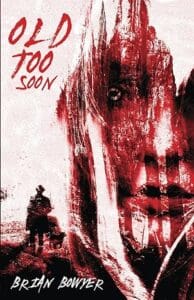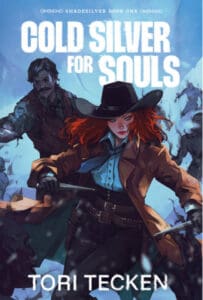
Synopsis:
Seven-year-old Wen and her parents, Eric and Andrew, are vacationing at a remote cabin on a quiet New Hampshire lake. Their closest neighbors are more than two miles in either direction along a rutted dirt road.
One afternoon, as Wen catches grasshoppers in the front yard, a stranger unexpectedly appears in the driveway. Leonard is the largest man Wen has ever seen, but he is young, friendly, and he wins her over almost instantly. Leonard and Wen talk and play until Leonard abruptly apologizes and tells Wen, “None of what’s going to happen is your fault.” Three more strangers then arrive at the cabin carrying unidentifiable, menacing objects. As Wen sprints inside to warn her parents, Leonard calls out: “Your dads won’t want to let us in, Wen. But they have to. We need your help to save the world.”
Review:
Amongst some horror right of passages, the entire backlog of Stephen Graham Jones, and a bunch of ARCs that I over-committed to on a particularly trigger happy Tuesday, Paul Tremblay’s “The Cabin At The End of The World,” is a book that has been languishing on my TBR for too long, that I promised that I would read in 2025. We’re barely 3 months in, and look at me go. I digress. Mind-bending, migraine-inducing, head-scratching, pulse-rushing, heart-racing, stomach-lurching… or just stressful if you’d rather, “The Cabin At The End of The World,” is, whilst exactly what I’ve come to expect from Tremblay, like nothing I could have imagined. I appreciate why exactly this one is divisive- it doesn’t just deny easy answers but actively smacks them out of your hands- but it’s a prime example of why you should find out for yourself, because I had a sweaty and nauseating yet brilliant experience with this one.
There are plenty of apocalyptic horror novels. Most of them go big. Cities crumbling, warheads detonating, plagues ripping through the population. The sky turns black, the earth splits open. Here though, Tremblay does something infinitely crueler, and… arguably much scarier. No fire raining from the sky, no undead clawing their way out of the ground, no news anchors sweating through doomsday reports as society collapses in real-time. Instead, he gives us a cabin in New Hampshire. A cabin. Four intruders. And one hell of a predicament. The rules of apocalyptic fiction are pretty much thrown out the window. No government conspiracies to unravel. No deus ex machina. No cure, no bunker, no perfectly timed helicopter rescue. We have a locked room and an impossible decision.
And somehow, that is so much worse.
Before I continue rambling, I should probably fill you in, on the off chance you were holed up in a remote cabin of your own, and don’t know. We follow Eric and Andrew who have taken their adopted daughter Wen away to a remote cabin in New Hampshire. Fresh air, family time and absolutely zero expectations of a violent, existential crisis. Wen is out in the front garden catching grasshoppers when an impossibly large and seemingly friendly enough bloke named Leonard joins her. Having been told not to talk with strangers, Wen runs inside and tells her dads, and before you can say, weird- armed with makeshift weapons (and genuine reassurances?)Leonard and his three friends are desperately trying to break in.
Perhaps the scariest aspect of those truly intense first 75 pages is that the people on the other side of the door aren’t masked killers or growling demons. It’s pretty easy, even satisfying, to scream at characters in horror novels “Run,” “Don’t let them in,” “What are you doing you fucking idiot?” But what happens when the threats aren’t foaming at the mouth sadists, but politely introduce themselves, ask nicely to be let inside, and seem genuinely regretful about the violence they are about to inflict? Leonard is the kind of guy you’d expect to run a summer camp, not an apocalypse cult. He is enormous but soft-spoken, gentle and calm. He doesn’t act like a monster. And that is precisely what makes him terrifying. There’s an eerie restraint to this book. The ultimatums aren’t screamed, the violence isn’t graphic- there is however a steady, unnerving insistence that what Leonard and co. are doing is necessary.
And, recurring theme, somehow, that is so much worse.
Home invasion horror gets to me more than most other sub-genres. It’s not just about violence- but about violation: of privacy, sanctuary, of the belief that outside is where danger lives. In “The Cabin at the End of the World,” Tremblay leans into this and adds some extra, existential seasoning. The invaders don’t just want access to the cabin, but access to belief and understanding. The four strangers (who may as well have rode in on horses) claim that the world is ending. That Eric, Andrew, and Wen alone can stop it. That a sacrifice must be made… and that if they refuse, billions will die.
I already knew that Tremblay was the king of ambiguous horror, but in “The Cabin at the End of the World,” he takes this to agonizing new heights. I’ll break it down. Are Leonard and his group delusional… or are they right? If they’re right (a big if) does it even matter? Is God indifferent, is faith transactional? Tremblay refuses to let us settle, twisting reality and perspective with such surgical precision that by the time the novel reaches its brutal, highly controversial climax, we’re just about as exhausted, broken, and uncertain as the characters.
A man that is resolution-averse (ironic for a maths teacher) Paul Tremblay has yet again frazzled my poor, poor brain. I had two options, sit in silence, or spew all of my hurt feelings out in the form of a long, winding and tangent-filled review, so here we are. Horror is at its most powerful when it lingers, continues to unsettle and disturb days later. That’s exactly the feat that “Cabin At The End of The World,” achieves. So read it. Lose sleep over it. Debate. Obsess. AND if four polite strangers ever show up at your door with some apocalyptic warning, run– because whether they’re right or wrong, nothing good happens next.









Leave a Reply